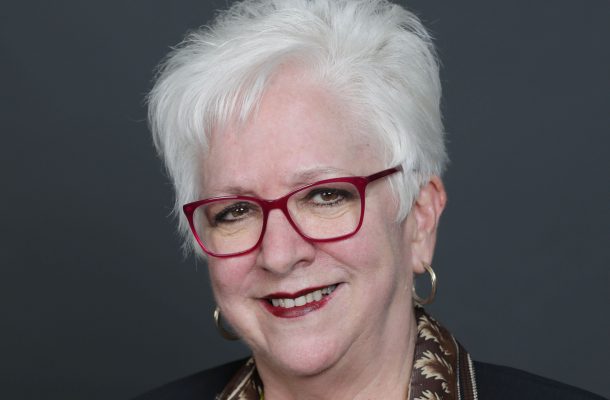The next chapter, how to be productive, a personal story

It’s Monday 1st March 2021 and I start the first day of the next chapter of my life. I have just celebrated my 68th birthday and calculated that I have in the paid workforce for nearly 18,000 days. I have had a dream career with a few bumps along the way some due to workplace bullying that is so common. There sure needs to be long term systemic workplace change so that all people, especially women can feel safe and respected. The misuse of power in a culture of silence are dangerous ingredients, that need to stop, starting with those in politics.
So, what am I looking forward to? I tend not to use the ‘R’ work as Retirement can often mean that you have stopped everything, that people will forget you, that life has lost its meaning and that your health will deteriorate. I have been reflecting a lot about what I loved in my various paid and volunteer roles from education, running a restaurant, being on Boards to executive positions in the charitable and non-government sectors. Simply put, I have been challenged intellectually, speaking out on causes that are important to a civil society and being with people who want to work hard as well as having lots of fun along the way.
These principles are what I will continue in my new chapter, which could last for another 20 years. I hope I have my dear father’s genes. He died at 93. We are living longer, healthier lives. Older people are not only living longer than the generations before them but living longer without disability or sickness. Currently there are over 12,000 people over 100 years old in Australia and by 2050 the estimate is 50,000 people over 100 years.
Of course, living longer does bring challenges of income security, quality care and choices but at this stage, I want to get the most out of what the next chapter offers, but that will not just happen. I need to develop my plan of purpose and action, and I can use Council on the Ageing NSW’s vision, that ageing is a time of possibility, opportunity and influence, as my guiding principles.
Here are my 2 ingredients for being productive as we get older; Stay connected and Stay active:
Stay connected
Employment and volunteer roles taught me the importance of social engagement and gave me a sense of purpose and belonging. I now have more time to spend with friends and family and help people out if they need assistance. My husband and I will be travelling domestically in 2021. We know lots of people in Queensland where we grew up. We went to NSW in 1983, then Canberra and now back to Sydney which is our home and the place that I want to live in and eventually spend my last years.
Living in different places and doing a range of jobs means that we know lots of people. However, as family responsibilities and jobs consume your life, I have lost contact with some people. COVID-19 made us more aware of the importance of friends and family, so I used FaceTime, sometimes daily to stay connected. A lesson learnt in 2020 with the impact of managing the new rules of living because of COVID-19, was feeling confident with meeting people on devices through platforms like Zoom, Microsoft Teams and FaceTime and the more I used them, the more confident I became.
Evidence indicates that people over 65 years are the most digitally excluded age group in Australia and yet essential government services, banking and health service delivery and communications are online. This can increase the potential for scamming which makes many older people vulnerable. I have been observing the difficulties that some older people have in using the COVID Safe Check-in and Check-out. Once you have a few bad experiences, you can lose your confidence, and then not bother to seek help. This can lead to social isolation and loneliness, and if prolonged, has long term health effects.
Meeting the challenges of the digital world is an important tool to keep connected. Feeling connected, valued, loved by your friends, family and the society, contributes to the quality of life for older people. Our friends know, if you have a spare bed, expect a visit and of course it is reciprocal. As I start my new chapter of life, I am really looking forward to continuing my friendships and meeting new people of all ages!
Stay active
Remaining independent in my own home and community is very important to me and I know the best way to achieve this, is to stay active physically, intellectually and socially. Eating a healthy diet especially lots of vegetables and having regular health checks are important, and of course the E word. Regular Exercise is essential for good health. Experts recommend 30 minutes a day of exercise, for those of us over 65 years. For me, that is walking in my local area to start with and then on a regular basis, I am going to get on public transport and explore a new area of Sydney. What you discover by walking is really just remarkable. My senses are heightened, and I am observing things that never caught my eye when I was on the routine trips to work.
If you can do the physical activity with people that can be even more beneficial. If I walk with a friend and chat along the way, the time goes very quickly. Some of my friends have joined a senior’s exercise group and they claim it has multiple benefits, the physical health benefits as well as meeting new people and having some fun. For some, exercise classes are useful, but it needs to be affordable and available. I have read some research that says, people are willing to pay $7 a class.
Staying intellectually stimulated for me means to stay involved in organisations that can use my skills and experiences. Three in four older Australians feel they have much to offer but feel less valued by society compared to when they were younger. This is a national shame due to the waste of talent and human capacity. I do love learning from younger people as well as passing on some of my wisdom and practical ideas. Paid and volunteer work kept me active in so many ways and as I explore the replacement options, I know that many older people want to and need to stay in work for obvious reasons, including financial security.
In recent work undertaken by COTA NSW, older workers and employers identified similar areas to address to make change including hiring managers need to be more thoughtful in the wording of advertisements so older people do not feel like their applications are not welcome, being clear with recruitment agencies that they are interested in seeking applications from older workers. As well, older workers are often overlooked for training opportunities. Good workplaces have systems in place to ensure that training opportunities are spread across the team including older workers.
Some facts
Women retire with half the superannuation savings of men and are the fastest growing homeless population in Australia. Older workers who are unemployed longer than 12 months are likely to never work again.
In closing I will continue to fight and advocate for issues important to older people. Changes need to be made to the way we support older people based on their needs and values. The stories from the Royal Commission into the care of older people have been very upsetting and shocking, and in that context, what I am finding difficult, is dealing with more deaths of loved ones. The thought that the care they receive in last years of their lives was poor quality, and that they lacked choices in the final chapter of their lives, is not the way to respect and honour the older people in our society.
There are currently more than 2.3 million of us over the age of 50 in NSW – almost one third of the population. We are largest ageing population in history. The perception that older people are well off, powerful and well-represented are not completely accurate. Some older people have been left behind. We need to ensure that all older people can participate in life and contribute to their families and communities.
To stay connected, to be active and have regular health checks are crucial to a quality of life. On the first day of not going to work, I had my yearly colonoscopy, the results are good and now my regular check is 2 years away, not yearly!
Joan Hughes is President of COTA NSW. She was the CEO of the Australian Veterans & Children Assistance Trust, having retired 1 March 2021.














